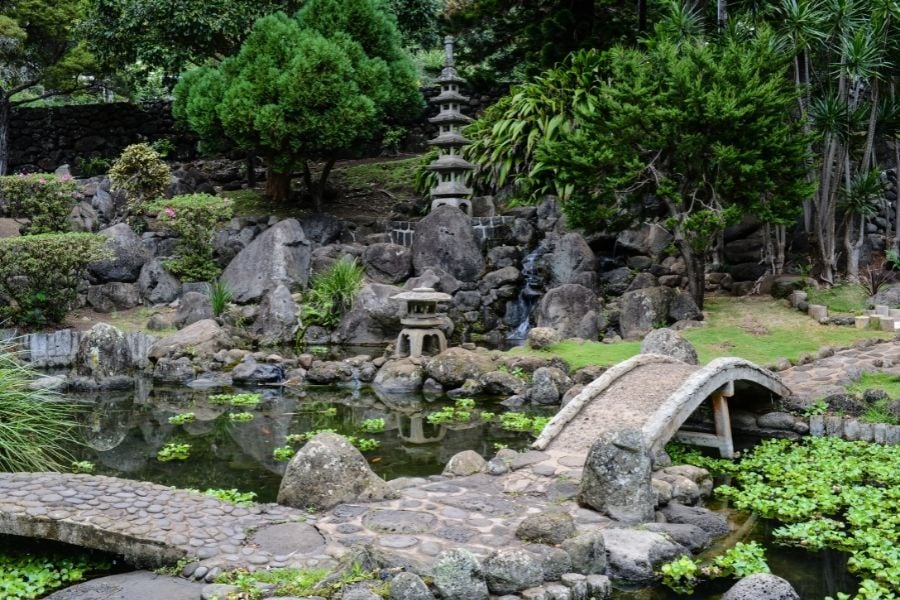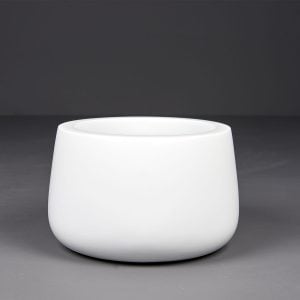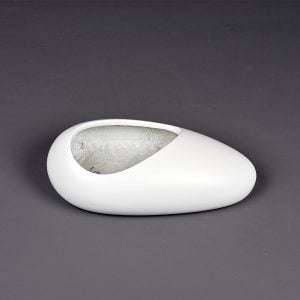- What is zen gardening?
- What does a traditional Zen garden consist of?
- The 7 best Zen plants for a Zen garden design
- 6 Ideas to use planters in a Zen garden
- Planters Etcetera best Zen planters
- What are the benefits of using planters in a Zen garden?
- A few Zen garden rules
- Things to avoid in a Zen Japanese garden
- What are the health benefits of Zen gardening?
What is zen gardening?
Zen gardens originated in Japan and the principle behind them is to build a zen space outdoors. The Japanese word for garden ( Tei ) actually means ‘to arrange’ as well as ‘a place’. The word ‘Zen’ means to do things by intuition, to be lost in the act of gardening in utter bliss and tranquillity.
A Zen garden is a representation of life, it incorporates natural elements to showcase a miniature landscape of the real world. They are also sometimes a beautiful feature of public parks to offer visitors a place for meditation.
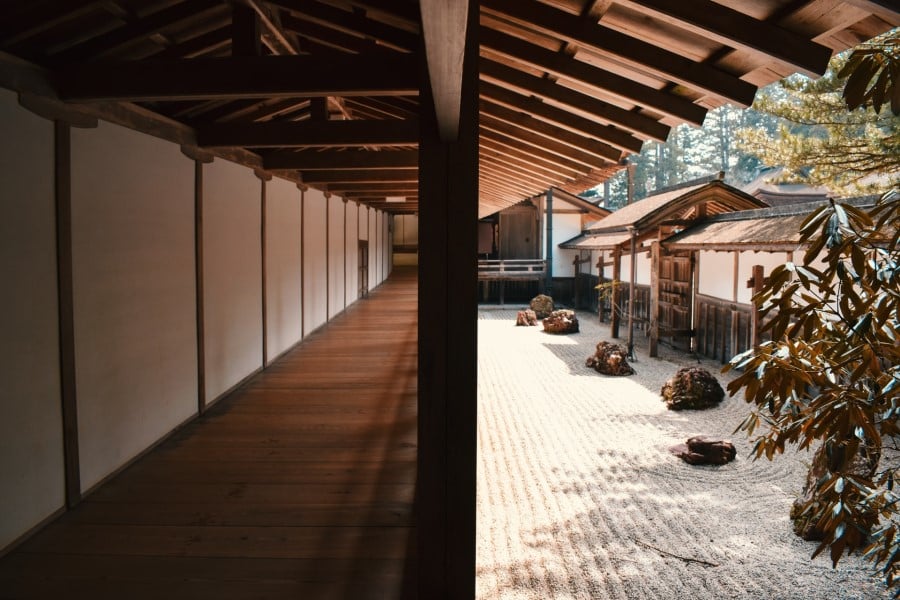
The aim of a Japanese garden is not to necessarily have the best or most striking zen garden design, rather, it should be a serene Zen garden where you can reflect, contemplate and get in touch with nature.
Each element within the classical Zen gardens has meaning and purpose to help you on this journey of self-discovery. Read on to find out more about zen garden designs.
What does a traditional Zen garden consist of?
6 basic concepts of a Zen garden
A Japanese Zen garden design contains several elements in a dry landscape that are accorded with spiritual meanings. Find out how they help you discover the natural world.
1. Water features
A water feature is perhaps the most important element within a Zen garden. A must-have in Japanese gardens, it is a focal point that is a reflection of life.
A faux waterfall is often found in Zen gardens. As water flows, it can help to bring inner composure which is something that we often lose in our busy, modern lives.
By focusing on the soothing sound of flowing water or by watching ripples form around the water lilies as the water moves, you can get in touch with your inner peace.
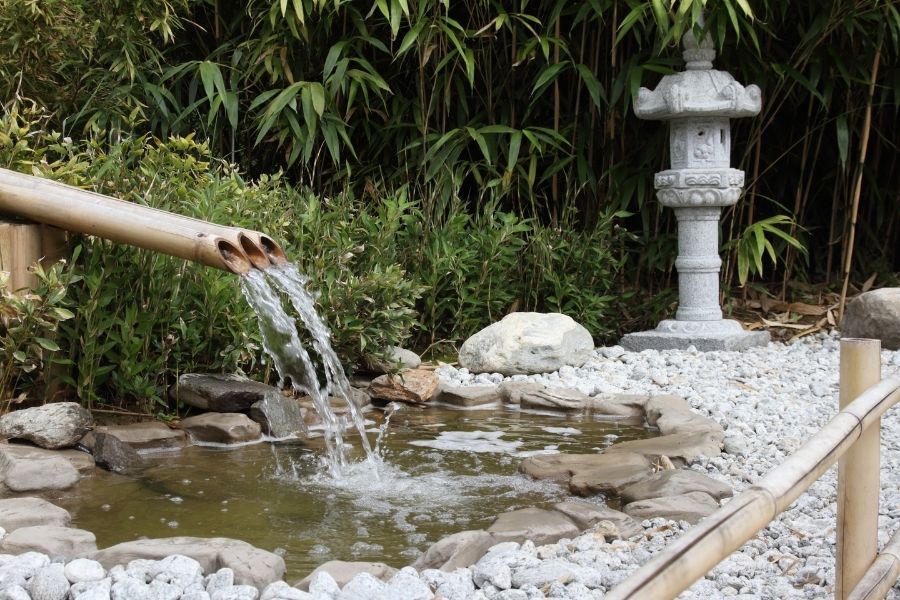
2. Decorative rocks
Rocks are said to represent nature’s permanence and strength. They also reduce the amount of water lost to evaporation and help a small plant grow by trapping moisture around their roots like in a dry river bed.
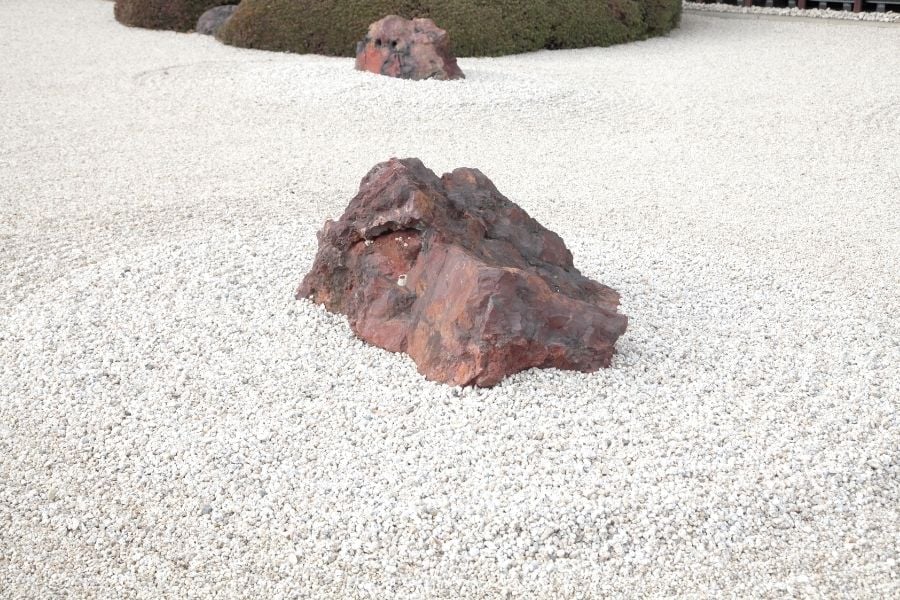
3. Terrain
The landscape of a Zen garden is also vital, particularly when it comes to creating natural landscapes such as hills and mountains, as they represent mental turmoil and stress that we often experience in our lives.
4. Stepping stones
The natural stones or fine gravel usually found underneath the large stones are used for aesthetic purposes and to create garden paths that allow you to walk around the Zen garden. Sometimes these Zen garden paths will lead you into direct contact with a meditation space that is often decorated with larger rocks or a Buddha statue, where you can sit and contemplate your thoughts.
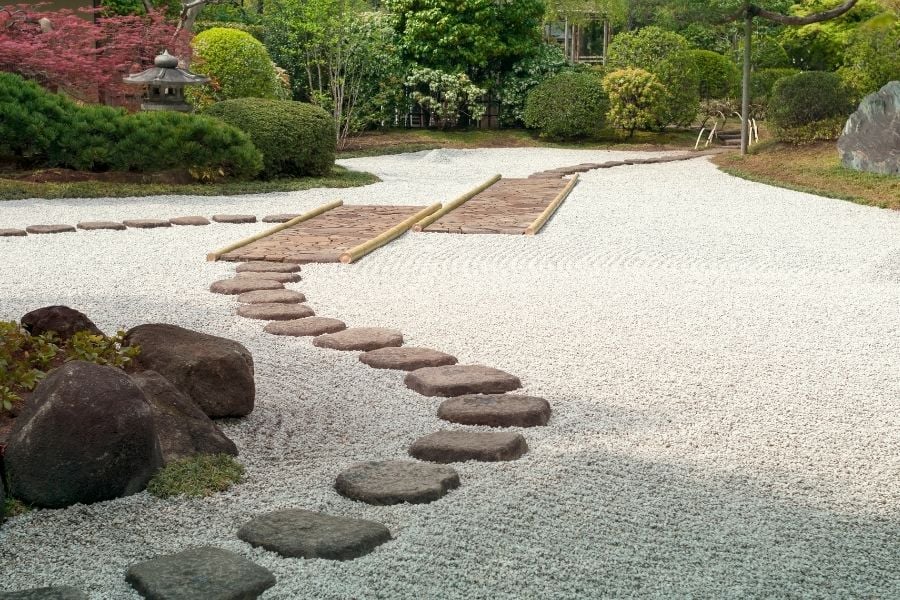
5. Raked sand
For a more classic Zen garden, this acts as a meditation tool. Beautiful and temporal, the carefully raked sand represents the ever-changing nature of life.
Raked gravel is also sometimes used in a Zen garden rather than sand. Fine gravel is less likely to be disturbed by water and wind compared to sand.
6. The plants
The final element of a zen garden is the greenery, which helps to promote happiness and togetherness within your Zen garden. Bamboo is an excellent choice for Zen gardens as it can be used for creating tall, straight lines which represent a strong mind and spiritual fortitude. Decorations such as stone lanterns or a Buddha statue can also be added amongst the plants.
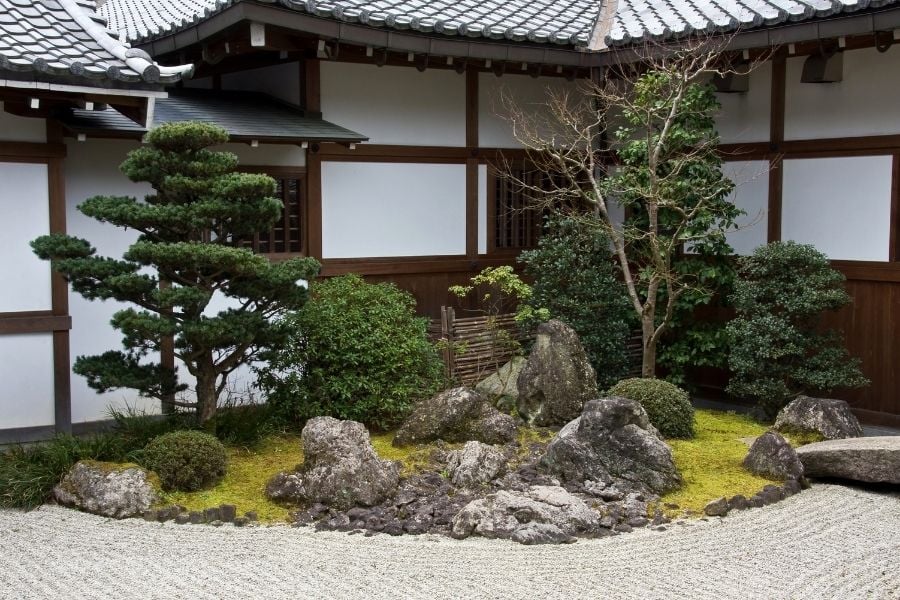
The 7 best Zen plants for a Zen garden design
The mineral (stones, rocks, gravel) and the vegetal are crucial for your Zen garden. The plants that you should grow in planters for your Zen garden should be low; flowering plants. However, you can also use taller grasses and shrubs in containers too so that they are kept neat and tidy
Thyme, lavender, and other herbs are especially great for your Zen garden ideas as they serve double or even triple purpose. They not only look great but are fragrant, medicinal, can be harvested for food and also repel insects such as mosquitoes.
1. Lantana
With its vibrant purple and yellow blooms, lantana is the perfect candidate for a Zen garden as it not only provides colour but will also attract butterflies to even to your small Zen garden.
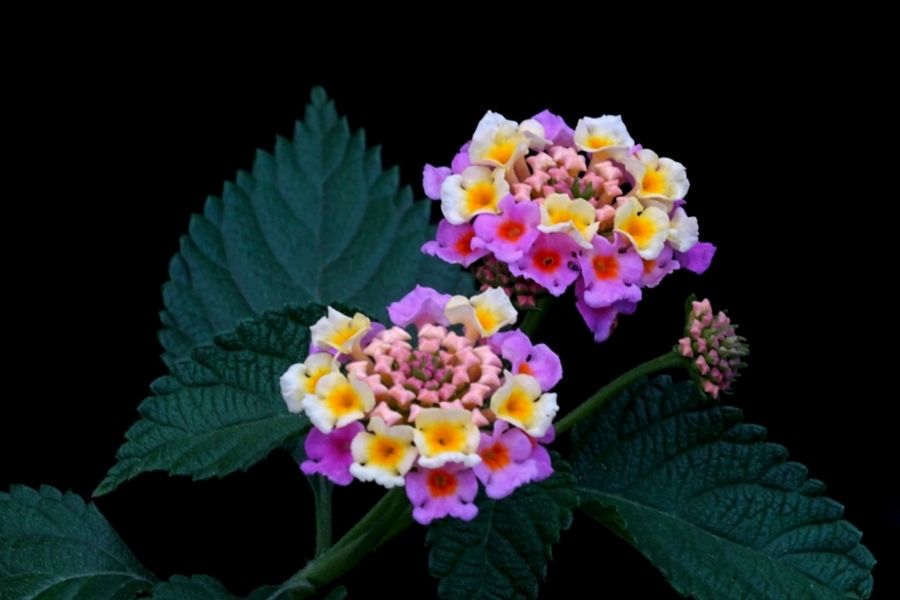
2. Japanese boxwood
This evergreen will provide a nice, dark green backdrop for your garden and can be used to build hedges or even a small fence. For container gardening, using a long rectangular planter for a privacy barrier effect will really work to separate your zen garden from the rest of the landscape.

3. Japanese sedge
If you have a pond with living elements or water feature within your Zen garden, the Japanese sedge is the perfect choice for your backyard Zen garden.
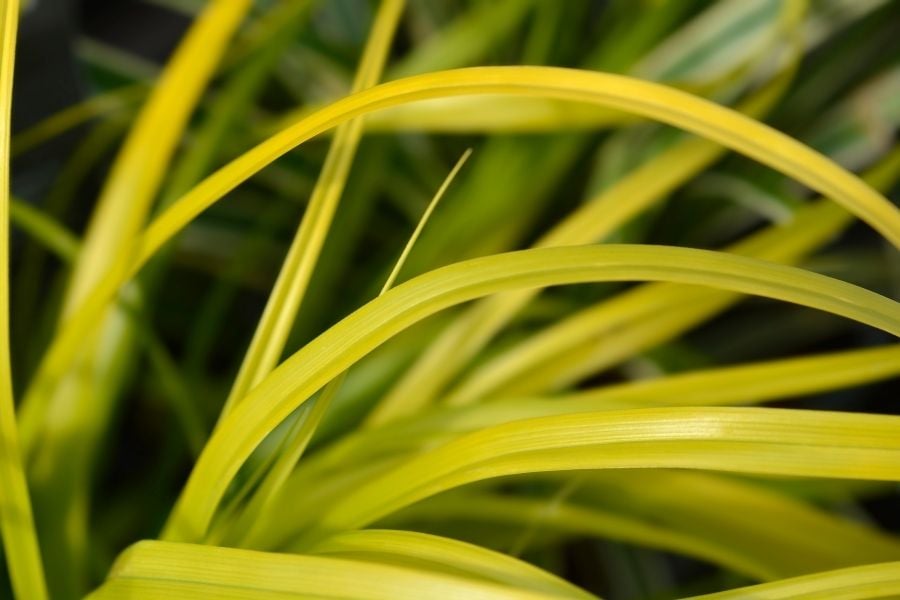
4. Black bamboo
Black bamboo is a top candidate for your Zen garden as the black sleek stems of the plant provide contrast to the lighter elements of your Zen garden such as the white gravel. Walls of black bamboo look great as a backdrop to your corner Zen garden, especially in our Darwin Tall Corner Planter.
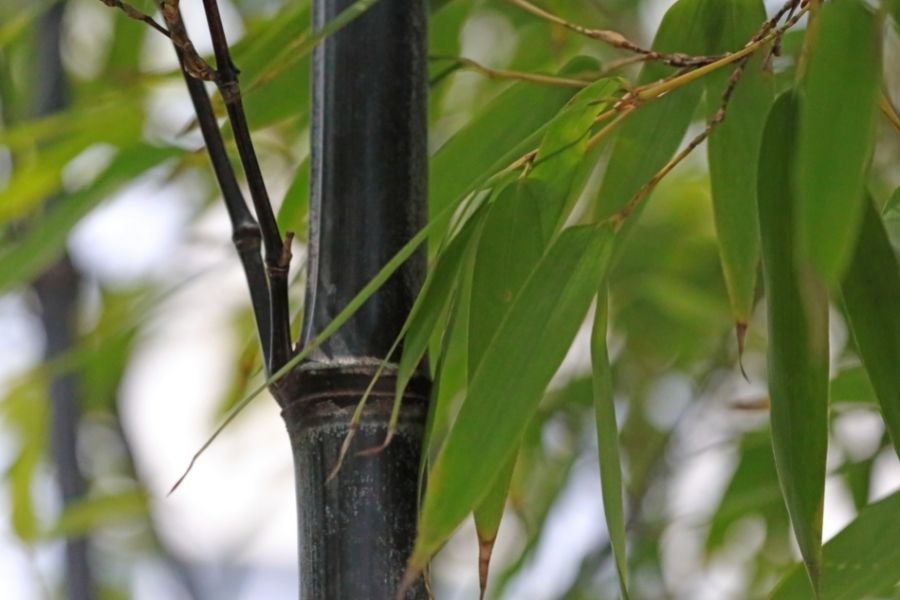
5. Sedum
This succulent plant is perfect for creating colour, texture and beauty to your Zen garden designs. Place them in little planters to provide pops of life on coffee tables or balcony walls.
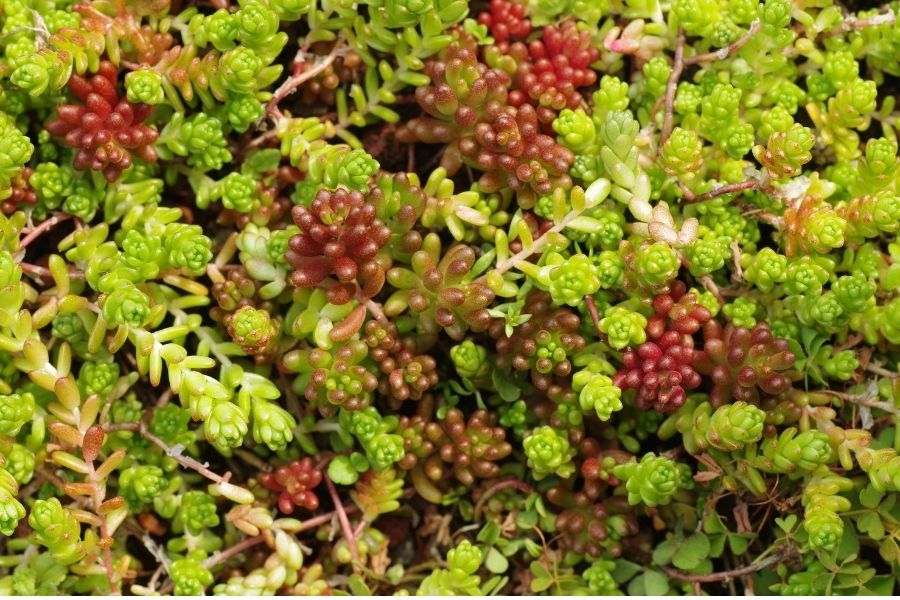
6. Japanese wisteria
This vine can be used to create a canopy of lush green leaves and gorgeous purple flowers in your Zen garden. The best part about it is that once established, it requires very little maintenance. They are also small enough to plant in a pot!

7. Japanese black pine
Japanese black pine trees are perfect for adding an interesting and exotic element to your Zen garden. These small to large trees with twisty and turny trunks are like works of art all on their own and can be put in a planter too.
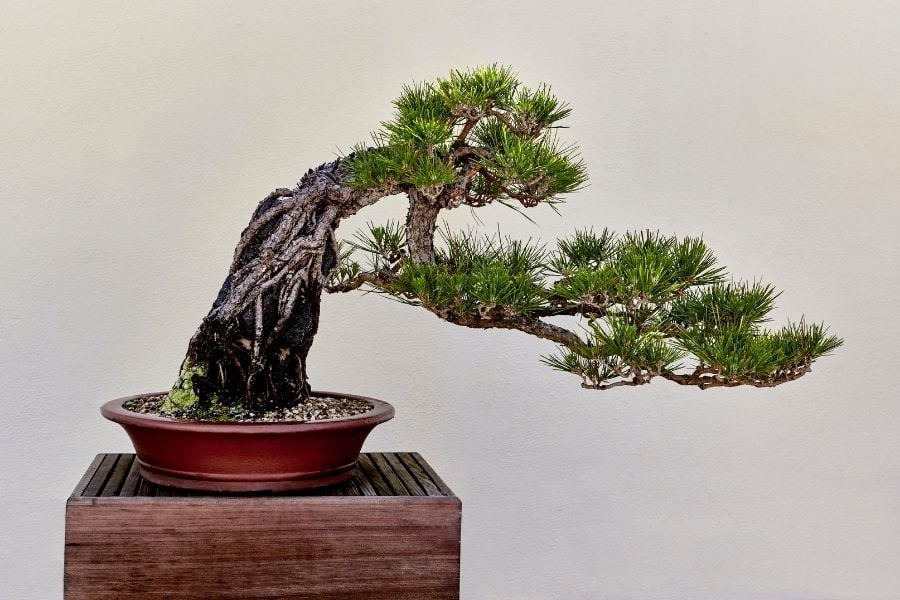
6 Ideas to use planters in a Zen garden
The use of pots in Zen gardens can help you achieve new levels of neatness, order, and visual appeal. They do this by giving your greenery defined areas where they can thrive and make your Zen garden more interesting and attractive at the same time.
By planning carefully, you can build stunning arrangements of pots that contrast and compliment other elements of your Zen garden for a more unique atmosphere.
Here are 6 Zen garden ideas to help you start your journey.
1. Planters and water
If you are using a water feature like a meandering stream or even a faux waterfall, placing a pot next to it will provide an excellent contrast in materials and allow your plants to get a little closer to the water. No beds of soil are needed!
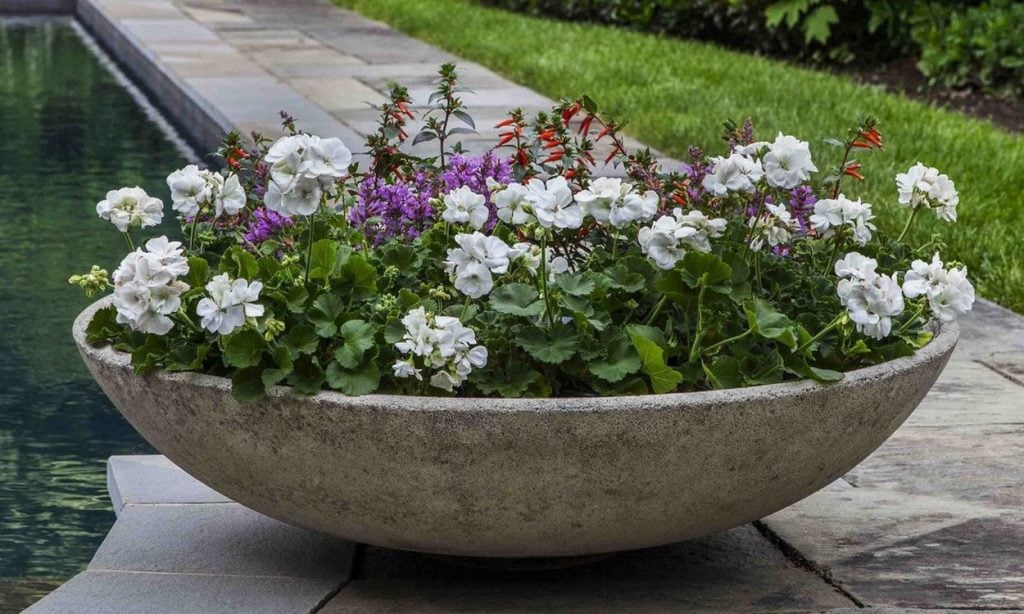
2. Planters and stone / gravel paths
Stones or gravel are a great way to lay out a walking path for people to move around your Zen garden. Using pots next to your trail gives visitors an interesting and defined journey to nature.
Even more decor opportunities arise when you consider the color scheme between the gray slate colour of your stepping stones and the finish of your planters. For example, light planter colours can be used to contrast the natural tones of the stones.
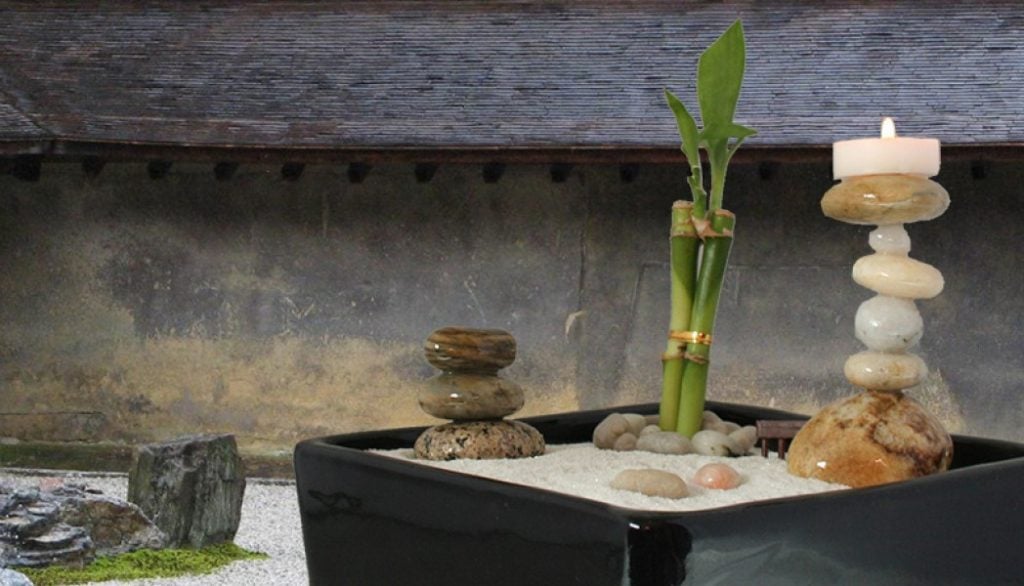
3. Planters and rocks
Plants, planters, rocks, and stones, all go hand in hand regarding balance in a Zen garden. Some planters like our river rock planter, for example, has all the aesthetics of river rocks with the added functionality of an effective planter. Decorative grasses are a great pair for these planters.
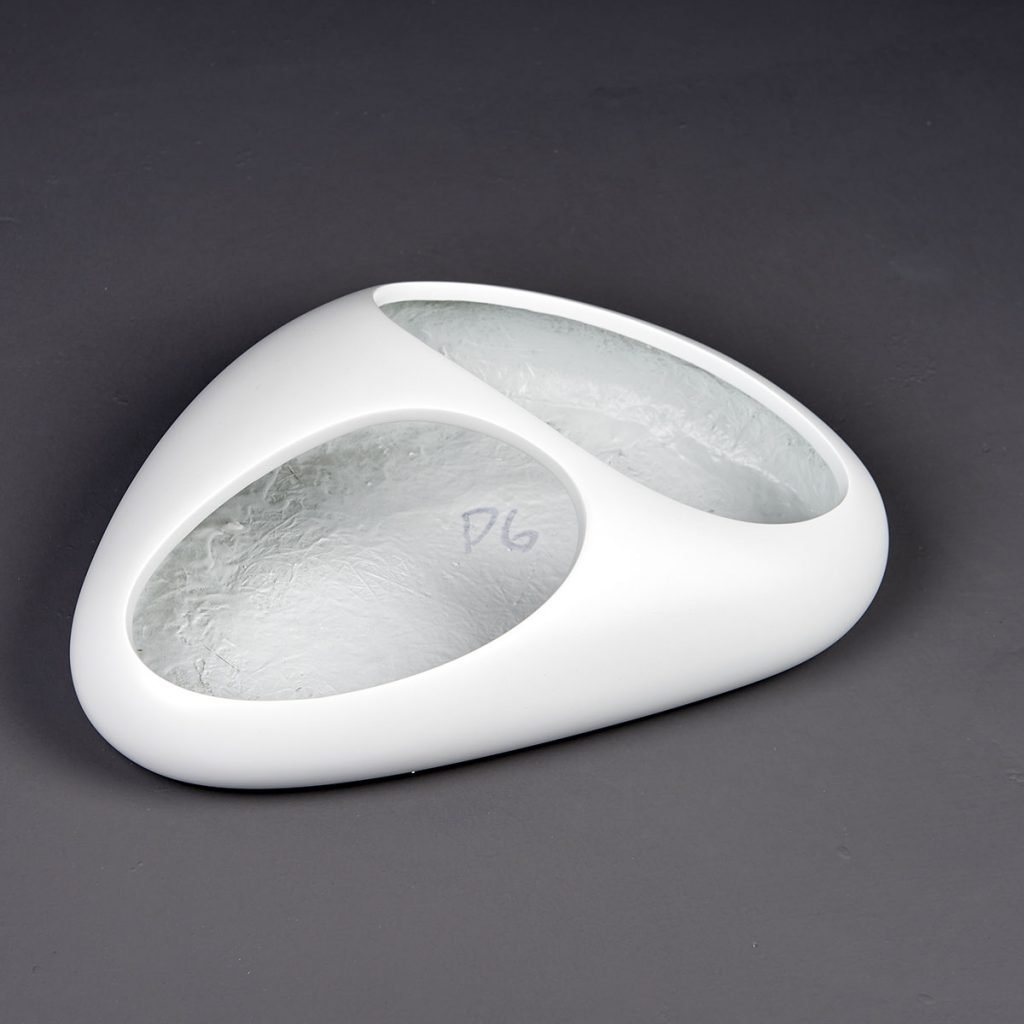
River Rock Planter (Medium)
4. Planters and sand
The sand used in a Japanese Zen garden is usually white sand. Using a planter of the same colour provides a calm, unbroken surface – a very pleasant effect in a Zen garden design.
5. Planters and plants
You can place several pots together in different sizes to create effect in your Zen gardens. Placing them next to each other will help the viewer’s eye to travel from one pot to another and allow their beauty to be appreciated more fully.
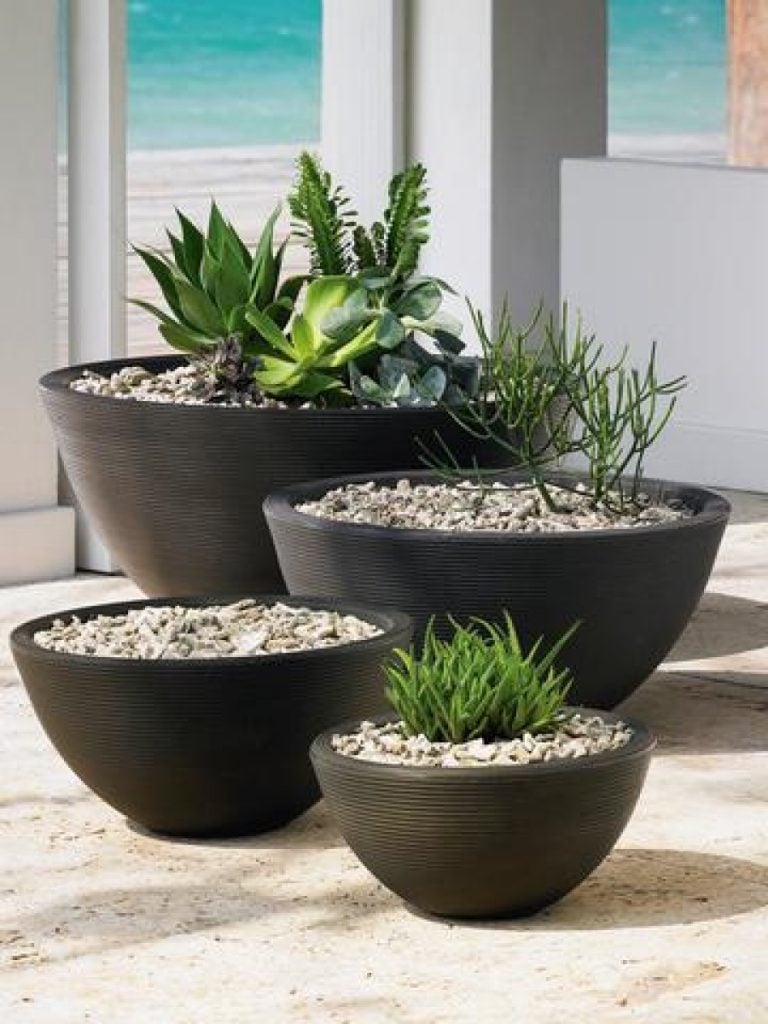
6. Planters to create symmetry in Zen gardens
It is extremely important in Zen garden designs that all the features work together towards creating a unified feel for the garden. Using planters in order to create symmetrical lines can help achieve this goal.
For a traditional Japanese garden, you will most likely find a lot of pruned trees used to create symmetry. Pruning is the method of removing unnecessary or unwanted parts. This is not only practised in a Japanese inspired garden but also in a lot of Asian gardens.
Planters Etcetera best Zen planters
-
Short Hayden Tapered Round Planter$101.89 – $239.69
-
River Rock Planter (Small)$39.01
What are the benefits of using planters in a Zen garden?
One of our top zen garden ideas is to use pots for your plants. In Zen garden designs, plants are usually placed very carefully in order to make sure that they do not block views or need too much maintenance.
In order to achieve of perfection and cleanliness in your Zen garden, pots are the perfect organizing tool to maximize your outdoor space.
Pots allow your plants to be moved around easily in your Zen garden so you can create new arrangements with minimal effort.
In addition, the container will also allow you to control the growth of the plant, which is helpful especially if you have a small space.
Using planters also means your Zen garden will be easier to maintain, restricting the space that weeds can grow and allows you to water your plants effectively.
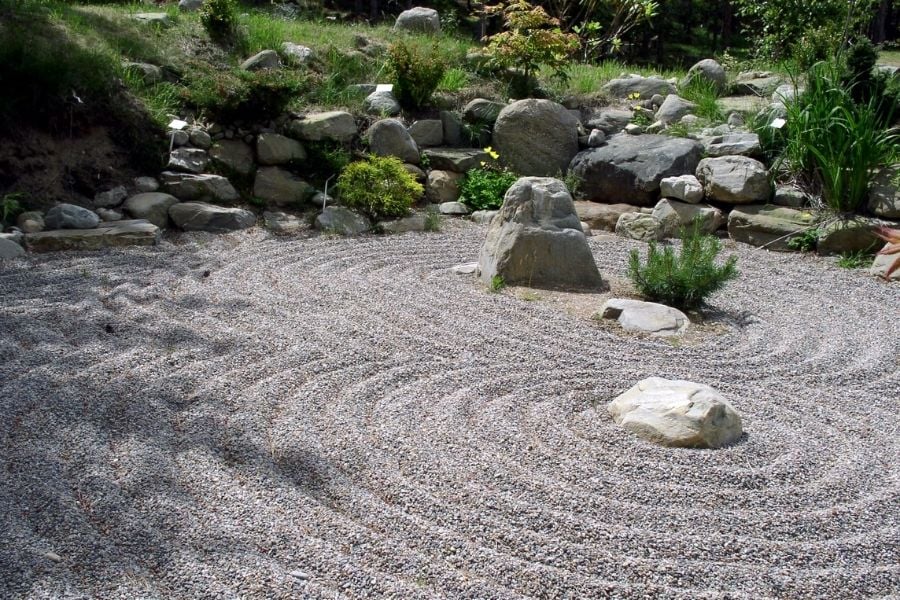
A few Zen garden rules
Adding pots to your Zen garden is a great way of utilizing the space available in an aesthetic and functional way. Whether you use traditional Japanese Zen garden design or prefer to experiment with contemporary designs, there are a few rules that need to be followed:
The pot should never detract attention from the plants within it. Instead, the focus should be on the plant and its effect.
Things to avoid in a Zen Japanese garden
There should be no sudden change of mood and sizes, dramatic contrasts are not acceptable and lastly, there should be no harsh shapes or lines. Everything has to be balanced and proportioned.
In Zen gardens, you will never find huge Japanese maples next to very small bushes for example. The changes needs to be done gradually.
What are the health benefits of Zen gardening?
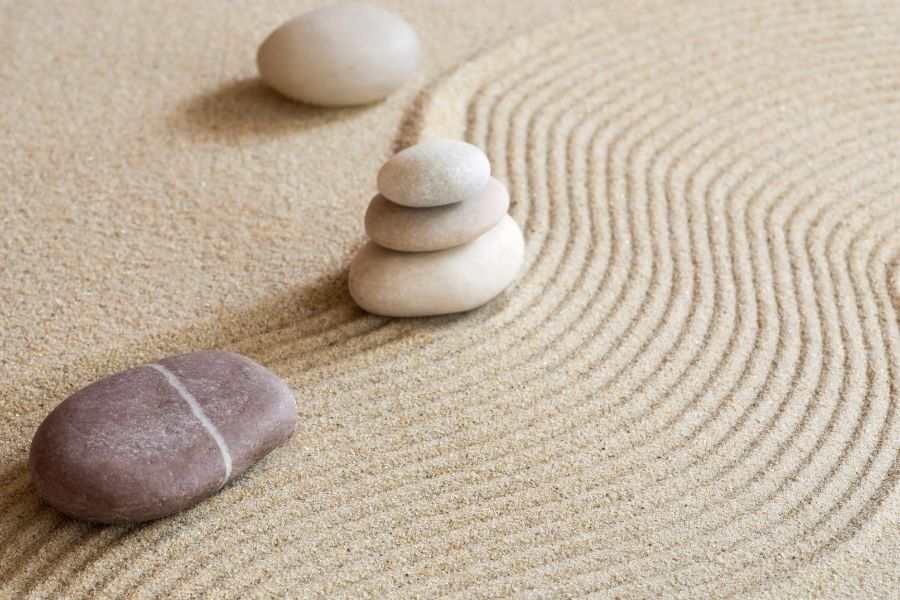
There are many benefits to this kind of gardening as it can help you to achieve spiritual enlightenment and embrace the inner artist in you.
Such gardens spur your creativity and decorating skills, and the wonderful part about this is that it can be a gentle and soothing reminder for you to spend more time meditating or focusing on your mental health.
Here are some of the best things about having a Zen garden in your life:
1. A zen garden can be commercial or backyard size
A zen garden can be created anywhere, so it doesn’t matter if you live on the 10th floor in an apartment block (build a miniature Zen garden or a small Zen garden on the balcony), in a rural location (make a backyard Zen garden), or if you are tasked with creating a commercial or public park. Incorporating Zen garden ideas into your space can help you or your audience reconnect with nature.
2. A good introduction to gardening and landscaping
You don’t have to be a pro to bring to life your Zen garden ideas.
If you have never gardened before, this will teach you the basics of looking after plants. It’s a great way to get into gardening. You can always tweak our Zen garden ideas to your liking.
You can choose between dry landscapes, often featured in zen garden designs, like Japanese rock gardens with manmade rock formations. Or a Japanese inspired garden with lush vegetation.
3. A hobby focused on relaxation and creativity
Having your own Zen garden is an excellent way for you to tap into your creativity and imagination, as the choices you make will reflect your personality.
The best part about having a Zen Japanese garden is getting in touch with your inner peace and spirituality, which may be lacking amidst the stresses of modern life. By focusing on this small garden area in your home, you will start to feel more zen. We hope the above zen garden ideas help you achieve more calmness and beauty!
If you want to know how our planters can be used to create rich landscapes, residential or commercial, check our guide to using planter colors in interior and landscaping design.
